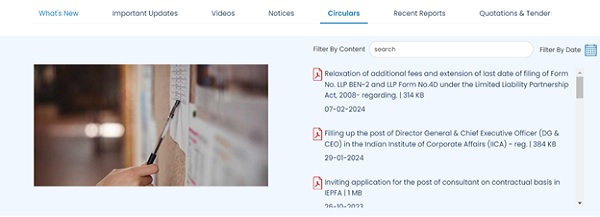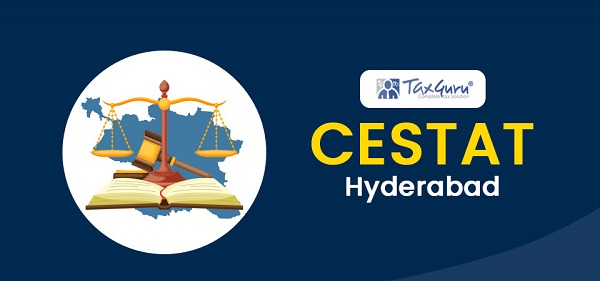Aditya Shah
Anomaly in Definition of Free Reserves under Companies Act, 2013 makes Companies Re-think about leaving credit in Profit & Loss A/c
Companies which have excess of Profit after appropriation for statutory reserves and dividend do have tendency to retain it as Surplus of the company, rather than transferring it to any Reserves, which are Free Reserves for the company. Free Reserves although are available as distributable for dividend; however distribution of dividend from Free Reserves are subject to certain additional compliances under Companies Act. Although, Free Reserves were not specifically defined under the Companies Act, 1956, there were references to the same in sections where such definition was required, for instance Section 372(A) of Companies Act, 1956 defined Free Reserve for limited purpose of that section. However Companies Act, 2013 (‘the Act’) has defined ‘Free Reserve’ so as to mean:
‘such reserve which, as per the latest audited balance sheet of a company, are available for distribution of dividend
Provided that-
i. any amount representing unrealised gains, notional gains or revaluation of assets, whether shown as reserve or otherwise or
ii. any change in carrying amount of an asset or of a liability recognized in equity, including surplus in the profit and loss account on measurement of the assets or the liability at the fair value,
shall not be treated as free reserve .
Free Reserves under Companies Act, 1956 was defined specifically for the purpose for which definition was required whereas under Companies Act, 2013 is defined in generic sense, unless any provision provides for specific alteration.
Companies Act, 2013 however does not prescribe what constitutes as Reserve. Thus a reference can be drawn towards Table F of Schedule I of the Companies Act, 2013; Clause 82 of Table F inter alia prescribes that the Board of the company may before recommending any dividend set aside such sums as they may deem fit as reserve or reserves and the company may also carry forward profit of the company without setting aside them as reserves. Table F although not mandatorily applicable to all the companies but has relevance since it forms part of the Act. The intention of the law maker seems to suggest that the profit which has been carried forward by the company would not form part of Reserve, since expression ‘The Board may carry forward any profits which it may consider necessary not to divide, without setting aside them as reserve ’ under sub clause (2) of Clause 82 of Table F implies that the profit which has been carried forward would be considered as ‘Surplus’ or company may opt to set aside carried forward profit as ‘Reserve’. Further to support this proposition reference can also be made to Schedule III of the Companies Act, 2013, whereby it prescribes that ‘Surplus’ refers to balance in Statement of Profit and Loss Account after disclosing allocation and appropriations made by the company such as dividend, bonus shares and transfer to/from reserves and further Debit balance of statement of profit and loss shall be shown as a negative figure under the head ‘Surplus’ (emphasis supplied).
Looking at Schedule III, it is clear that the intent of law was to prescribe a specific difference between Surplus and Reserves. Thus it can be inferred that carried forwarded Profit of the company would constitute as ‘Surplus’ of the Company and not ‘Reserve’.
What is the Anomaly all about?
Companies generally retain their excess profit under Profit and Loss Account or Surplus Account rather than transferring it to any reserve of the Company under Companies Act, 1956. The main advantage of doing so is that the company would be able to freely distribute its profit as dividend from the Surplus rather than carving out an amount from the Free Reserves which would require compliance of provisions pertaining to dividend. This being the premise, under various provisions of the Companies Act, 2013, where ever reference has been made to ‘Free Reserve’, surplus of Profit would not be taken into consideration. Apart from affecting the dividend distribution ability of the company, there exist various provisions under the Companies Act, 2013 where this will affect the company, which are discussed below.
Impact
The insertion of definition of ‘Free Reserve’ under the Companies Act, 2013 and classifying accumulated profit of past years under the head ‘Surplus’ rather than terming it as Reserves, would have far-reaching impact on those companies who have tendency to show profit under the heading ‘Surplus’ rather than transferring it to general reserve. To take a few examples, while calculating ‘Net worth’ which is defined under Section 2(57) of the Companies Act, 2013 so as to mean:
‘the aggregate value of the paid-up share capital and all reserves created out of profits of the company and securities premium account after deducting aggregate value of the accumulated losses, deferred expenditure and miscellaneous expenditure not written off, as per the audited balance sheet, but does not include reserves created out of revaluation of assets, write-back of depreciation and amalgamation’.
It is evident from the definition while calculating net worth of the company, reserves which have been created by the company out of the profits of the company are to be considered and hence, profit of the company forming part of ‘Surplus’ would be ignored; further it is also important to note that definition of Net worth expressly provides for deduction of aggregate value of accumulated losses. Thus on one hand Company would not be allowed to consider ‘Surplus’ as part of Net worth and on the other hand in case if company has accumulated loss the same has to be deducted while calculating net worth of the company.
Section 180(1)(c ) which provides for threshold on Borrowing power by the Board of the Company where it provides that where company intends to borrow money exceeding its paid capital and free reserve would require prior approval of share holder by way of special resolution, so incase where company has very low reserve base and high accumulated profit chances are high that such limit might exhaust on borrowing of a very small amount.
Another instance where companies may face difficulty due to non insertion of Accumulated Profit under category of Free Reserve is Section 186 where restriction has been cast upon loan making and acquiring securities of any other body corporate or on giving any guarantee by the Company. Where a company intends to provide loans or invest or provide security exceeding :-
a. 60% of paid up capital, security premium and free reserve or
b. 100% of security premium and free reserve whichever is higher
prior approval of share holders by means of special resolution has to be sought. Thus, were the ‘Free Reserve’ base of company is low, it may frequently require approval of share holders while granting loans or acquiring of subscribing towards of security of other company.
Companies thus would require re-thinking, not only for the purpose of giving dividend but also for various others factors in order to retaining profit in surplus rather than transferring the same to reserves. Since retaining profit forward may hinder decision making ability of the Board of the company.
[The above post is contributed by Aditya Shah at Vinod Kothari & Co. and can be contacted at aditya@vinodkothari.com]





















As per certain Sections of the Companies Act, 2013 ceiling for borrowings,
investments etc are defined as paid up share capital plus free reserves.
Companies Act, 2013 has defined ‘Free Reserves’ so as to mean:
‘Such reserve which, as per the latest audited balance sheet of a company, are
available for distribution of dividend
Provided thati.
any amount representing unrealised gains, notional gains or revaluation of assets,
whether shown as reserve or otherwise or
ii. any change in carrying amount of an asset or of a liability recognised in equity,
including surplus in the profit and loss account on measurement of the assets or the
liability at the fair value,
shall not be treated as free reserve.
There can be the cases where, there is a carried forward loss in Profit & Loss Account.
In such cases, whether any amount is to be deducted from the free reserves?
If answer to the above question is yes, then in the cases where there is no free
reserve in such cases that will be negative free reserve.
If that is done then paid up capital plus negative free reserve is equal to negative net worth. If legislature would have intended to have such a situation then they would have used the word net worth rather than using the word paid up share capital and free reserve.
Whether there can be negative free reserves. Please reply
Another offshoot is the way it affects Sec 63 – Bonus Shares. Since Bonus Shares can be issued out of free reserves and the term free reserves is defined as the free reserves as per latest audited balance, it is possible that even where there are no or insufficient reserves on the date of Bonus Issue, one can still come out with a Bonus issue just because the company had sufficient free reserves as per latest audited balance sheet.
I have two pockets, one which i can spend, the other i can also spend but has restrictions to spend. What a BS. Only in India Ladies & Gentlemen
My suggestion is open a new account in books styled as ” FREE RESERVE” and transfer the surplus to this account, all the problems will be solved.